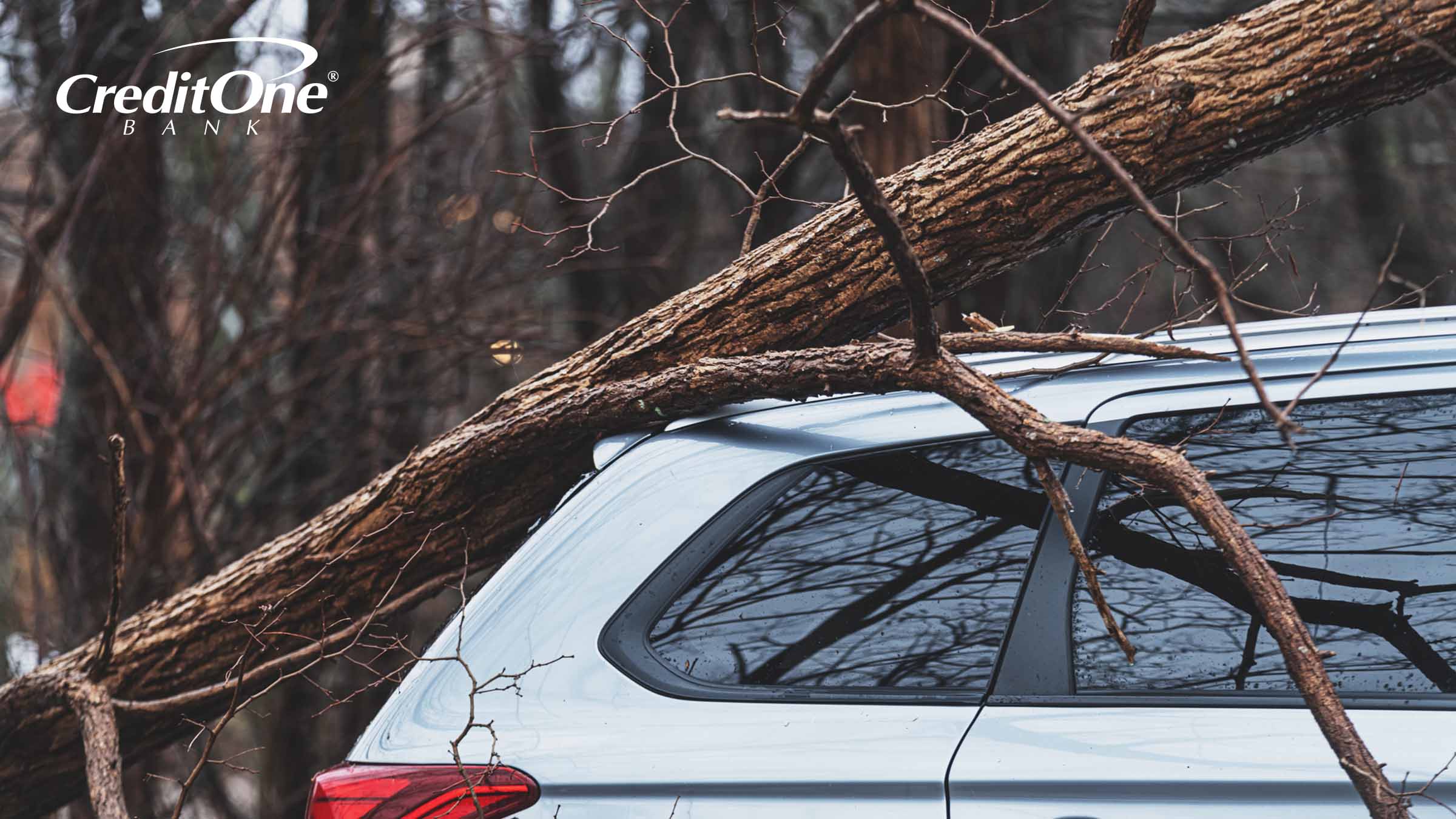Comprehensive vs. Collision Auto Coverage
November 13, 2023
Topics:
InsuranceLooking to find more coverage in case of damage to your car? Learn all about the differences between comprehensive and collision auto insurance.

Introduction
Fun fact: The first auto insurance policies were issued back in the late 1890s. For reference, the first “municipal traffic control system” (aka traffic light) wasn’t even installed until an engineer in Cleveland named James Hoge created one in 1914.
(Also, the first windshield wiper was patented in 1903 by a woman named Mary Anderson … but I digress.)
I bring these random nuggets of information up because they give you an idea of how long auto insurance has been around in the U.S., helping those in financial need after an emergency. It’s also evolved quite a bit since the 1890s. I think it’s probably safe to guess that the fine folks back then weren’t wondering what the difference was between collision and comprehensive insurance.
Speaking of…
What Is the Difference Between Collision and Comprehensive Insurance?
While both collision and comprehensive insurance are types of physical damage coverage that protect your car, they have some differences — mainly the situations they cover.
Collision insurance covers damage if:
You hit another car or object with your vehicle
Another car hits your vehicle
Comprehensive insurance covers non-collision damage to your car caused by:
Falling objects
Fire
Natural disasters
Vandalism
Animals
So, if your car is damaged because you accidentally drove into a tree? Collision insurance. If a tornado sent that tree hurling through the air and onto the roof of your parked car? Comprehensive insurance. Make sense?
Another difference is the cost. Typically, comprehensive insurance costs less than collision, even though “comprehensive” sounds like it gives you more. But it’s important to remember that the cost can range based on several factors, including the type of vehicle you drive and where you live.
Why Get Comprehensive Insurance?
There are several factors to consider if you’re thinking about getting comprehensive car insurance (more on that below). But a simple way to figure it out is to ask yourself what you can and cannot afford in case your car is damaged by something beyond your control.
If that previously mentioned tornado-flung tree lands near your parked car and slightly scratches the door, you may be able to afford the bill yourself to buff that scratch out. But can you say the same if the tree lands square on the roof and turns your hard-top car into a convertible? If the answer is no, comprehensive coverage may be something you want to consider.
Why Get Collision Insurance?
Again … there are factors to consider if you’re thinking about getting collision insurance (which will be conveniently detailed in the next section). And, again, there’s also a simple way to answer this question: think about your finances. If you’re driving and get into an accident with another vehicle, can you afford to fix the damage on your own? If not, collision insurance can help.
Factors To Consider
Finally, the oft-mentioned factors! As I said in the previous two sections, there are a few things to think about when deciding whether you should get comprehensive and/or collision insurance.
Your finances – Talked about it a couple of times. Worth repeating again. Do you have a large enough emergency fund to pay for car damage or replacement? If not, consider getting coverage.
Your car value – The maximum possible payout is based on the value of your car at the time of the accident, minus the deductible. So, if your car is older with low value, consider whether the potential payout would be worth the premiums you’d pay for either or both coverages. On the other hand, the higher your car’s value, the more expensive it is to repair or replace. So, having extra coverage can lower those costs out of pocket.
Your driving habits – Do you have a long commute every day or does your car mostly just sit in the driveway? The more you drive, the higher your risk of getting into an accident … increasing the need for collision insurance. And vice versa. Speaking of accidents, if you’re prone to fender benders, you may want to start that collision coverage paperwork now.
Your location – Location, location, location. Is your area prone to natural disasters? Is there a high crime rate? If your answer is yes to either, then getting comprehensive coverage may be a good idea.
Do You Need Comprehensive and Collision Insurance?
Neither coverage is required by state law. However, if you’re leasing or financing a car, the lender may require it whether your home state does or not.
But do you need them? That’s something you’ll have to answer for yourself based on the factors above. Just remember that if you choose not to get either coverage or you drop one or both, you’ll have to use your own money to cover any damages.
Bottom Line
Unfortunately, cars collide, storms storm, and thieves thieve. And in the event that something happens to your car, having additional coverage can provide some much-needed financial assistance to get your car repaired and back on the road. I’m sure our friends back in 1914 would have appreciated some extra collision insurance while everyone tried to figure out how a stop light worked!
Ready to hit the road? If you’re interested in finding the right coverage at the best price for you, Credit One Insurance allows you to compare rates from over 40 carriers instantly.
Happy driving.
With his eyes set on becoming the next great ad man (at least until his comedy writing career took off), Marc earned his journalism degree and went straight into advertising for various gaming and tourism clients. He later expanded his credentials to include public affairs and communications work for several environmental science organizations before returning to his marketing roots. A lifelong scholar with recent studies in strategic communication, Marc enjoys tying humor into his writing and simplifying complex financial subjects into engaging and easy-to-digest content for a wide variety of audiences.
This material is for informational purposes only and is not intended to replace the advice of a qualified tax advisor, attorney or financial advisor. Readers should consult with their own tax advisor, attorney or financial advisor with regard to their personal situations.
Credit One Insurance Agency, LLC’s services are not available in all states.

